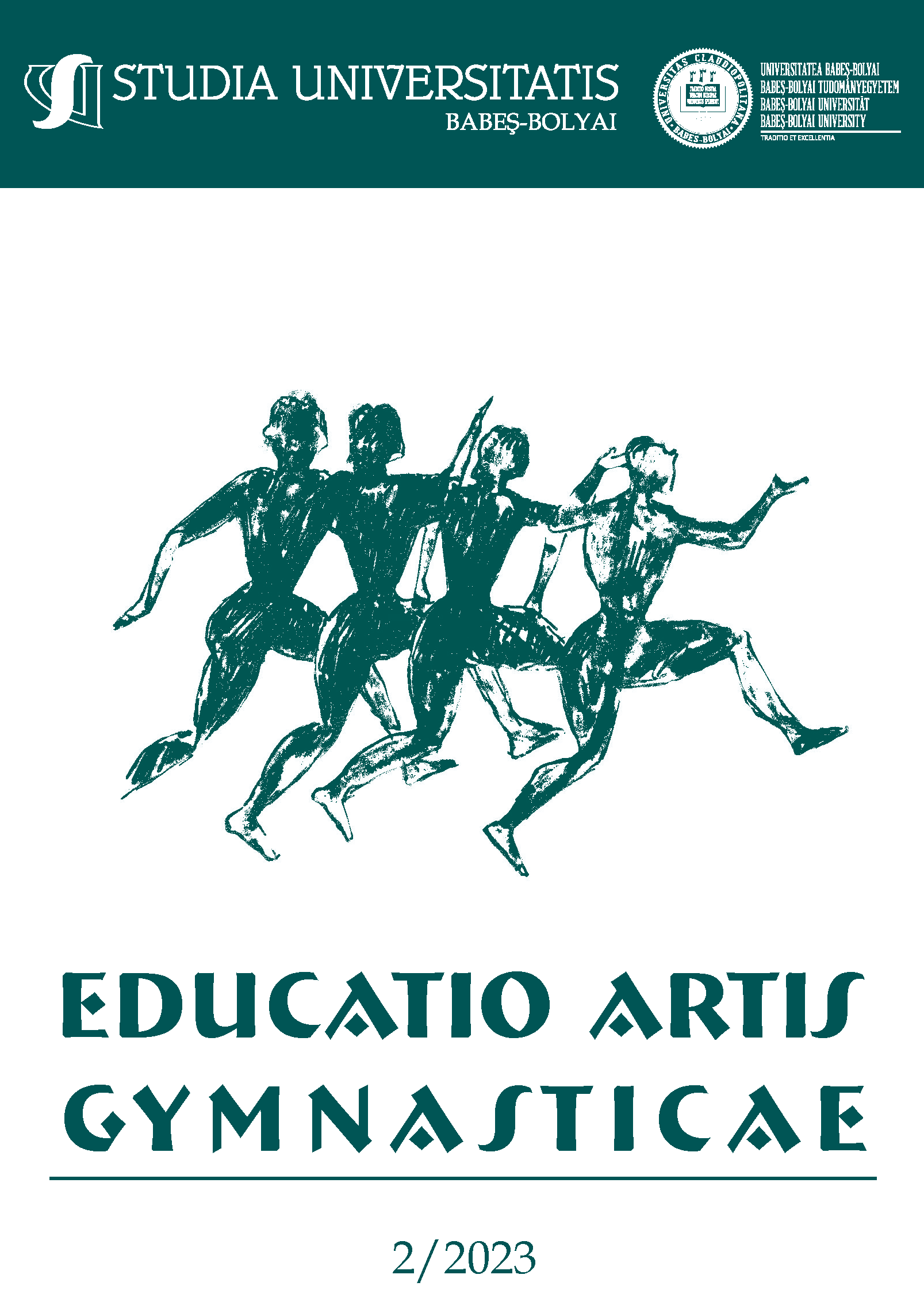THE IMPACT OF THE COVID-19 PANDEMIC ON HUNGARIAN HEALTH TOURISM
DOI:
https://doi.org/10.24193/subbeag.68(2).13Keywords:
Health tourism, COVID-19, Macroeconomic impact, Hungary.Abstract
Introduction: Health tourism is a key economic sector in Hungary, and its development and support has been a priority of the national economic development programmes since the millennium. Just like in the rest of the world, Hungary’s tourism performed badly in the first year of the COVID-19. Objective: The objective of our study was to examine the main indicators of inbound health tourism to Hungary in the period of 2019-2020. Our main objective was to estimate the loss to the country’s budget from declining inbound health tourism. Methods: The applied research method was secondary research, based on tourism demand data published by the Central Statistical Office (KSH). The national economic effects generated by the expenditure of foreign health tourists in Hungary were estimated using input-output analysis. Results: The number of foreign health tourists decreased to 46.4% compared to 2019, and the number of days spent by foreign health tourists decreased to 40.9% compared to the previous year. In the year of the pandemic, inbound health tourist spending generated total national output of €417 million, a decrease of more than 46% compared to the previous year. The contribution of inbound health tourism to GDP was €209.2 million, almost €160 million lower than in 2019. Conclusion: After a peak year in 2019, pandemic COVID-19 led to a significant drop in demand in the inbound health tourism market, which will also see a sectoral and territorial shift in 2020.
Received 2023 April 04; Revised 2023 June 15.; Accepted 2023 June 16;
Available online 2023 July 30; Available print 2023 August 30.
References
Ács, P., Laczkó, T. (2008). Spatial Concentration of Hungary’s Health Tourism. Modern Geográfia, 3(2), 1-22.
Aquaprofit Műszaki, Tanácsadási és Befektetési Rt. (2007). Országos egészségturizmus fejlesztési stratégia. Retrieved from http://www.oib.gov.hu/docs/egeszsegturizmus_strategia.pdf
Állami Számvevőszék (ÁSZ) (2021). Retrieved from https://www.asz.hu/storage/ files/files/elemzesek/2021/turizmus_jarvany20210325.pdf?download=true
Boros, Sz., Mondok, A., Várhelyi, T. (2012): Az egészségturizmus szolgáltatási és menedzsmentje. Szolnok: Szolnoki Főiskola, p. 386.
Csapó, J., & Lőrincz, K. (2020). A turizmus gazdaságban betöltött szerepe és irányai Magyarországon a COVID-19 előtt és után. Geometodika. 4 (3).
Fortunebusinessight. (2021). Retrieved from https://www.fortunebusinessinsights.com/ industry-reports/infographics/ medical-tourism-market-100681
Gellai I. (2004): Az egészségturizmus szerepe – nagyságrendje Magyarország turizmusában. kézirat, Budapest.
Global Wellness Institute (2021). The Global Wellness Economy: Looking Beyond COVID. Retrieved from https://globalwellnessinstitute.org/industry-research/the-global-wellness-economy-looking-beyond-covid/
Győri, F. (2020). Health–Sports–Tourism: with the Prospects of Hungary. Foundation For Youth Activity and Lifestyle, Szeged.
Győri, F., Hézsőné, Böröcz, A., Kiss, G., Lehmann-Dobó, A., Meszlényi-Lenhart, E., & Balogh L. (2015). Wellness, sport- és egészségturizmus. Szeged: Szegedi Tudományegyetem Juhász Gyula Pedagógusképző Kar Testnevelési és Sporttudományi Intézet.
Kincses Gy., Borbás I., Michalicza P., Udvardy E., Varga E. (2009). Az orvosi szolgáltatásokra alapuló egészségturizmus tendenciái. Budapest: ESKI, 99. p. Retrieved from http://www.eski.hu/new3/gyogyturizmus/zip_doc_2009/egeszsegturizmus.pdf
KSH. (2022a). Településszintű kereskedelmi szálláshelyi adatok - kiemelt települések adatai. Retrieved from https://statinfo.ksh.hu/Statinfo/haDetails.jsp?query=kshquery&lang=hu
KSH. (2022b). Magyarországra tett külföldi utazások főbb mutatói 2017-től (új motivációs szerkezetben). Retrieved from https://statinfo.ksh.hu/Statinfo/haDetails.jsp?query=kshquery&lang=hu
KSH. (2022c). A kereskedelmi szálláshelyek külföldi és belföldi vendégforgalma. Retrieved from https://www.ksh.hu/stadat_files/tur/hu/tur0017.html
KSH. (2022d). A Magyarországra tett külföldi utazások száma és a hozzá kapcsolódó kiadások a tartózkodás ideje szerint. Retrieved from https://www.ksh.hu/stadat_files/tur/hu/tur0003.html
KSH. (2022e). A fürdők főbb jellemzői, forgalma és a fürdők által nyújtott szolgáltatások vármegye és régió szerint Retrieved from https://www.ksh.hu/stadat_files/tur/hu/tur0038.html
KSH. (2022f). Gyógyszállók mutatói – éves Retrieved from https://statinfo.ksh.hu/Statinfo/haViewer.jsp
Laczkó (2021). Magyarországra érkező külföldi egészségturisták fogyasztásának nemzetgazdasági hatásai 2019-ben (Economic impact of foreign health tourists arrived in Hungary in 2019). Modern Geográfia Vol. 16, Issue 1, 2021: 1-22 DOI:10.15170/MG.2021.16.01.0
Laczkó, T. (2009). A nemzetközi wellness-turizmus jellemzői a XXI. században. Modern Geográfia, 4(1), 1-20.
Laczkó, T. (2015). Magyarország egészségturizmusa. In T. Laczkó & M. Bánhidi (Eds.), Sport és egészségturizmus alapjai. (pp. 144–157). Pécs: PTE ETK.
Laczkó, T., Bánhidi, M. (2015). A belföldi és a beutazó turizmushoz kapcsolódó sportfogyasztási szokások alakulása Magyarországon. In T. Szabó, M. Bánhidi, & G. Szőts (Eds.), A sportturizmus gazdasági és társadalmi kérdései Magyarországon. (pp. 187–212.). Budapest: Magyar Sporttudományi Társaság.
Laczkó, T., Bátor, G. (2020). Magyarországi sporteseményekre érkező külföldi turisták fogyasztásának nemzetgazdasági hatásai 2019-ben. Sport-és Egészségtudományi Füzetek, 4(4), 78-93.
Laczkó, T., Rébék N., Á. (2008). „A wellness régióspecifikus jellemzői”. Pécsi Tudományegyetem Egészségtudományi Kar, Pécs, 35.
Laczkó, T., Stocker, M. (2020). A 2017. évi hazai rendezésű nemzetközi sporteseményekre érkező külföldi turisták fogyasztásának nemzetgazdasági hatásai. Turizmus Bulletin, 20(2), 22-32.
Laczó, T., Ács, P. (2009). Spatial characteristics of the Hungarian wellness market’s demand and supply relations. World Leisure Journal, 51(3), 197-210.
Michalkó, G., Rátz, T., Hinek, M. (2011). Az egészségügy turizmus kínálatának területi különbségei Magyarországon a szolgáltatók internetes megjelenései alapján: Michalkó G. & Rátz T. (Ed.) Egészségturizmus és életminőség Magyarországon (pp.155-173). Budapest, MTA Földrajztudományi Intézet
MTÜ (2017). Magyar Turizmusfejlesztési Stratégia 2030. Budapest: Magyar Turisztikai Ügynökség
MTÜ (2020). Egészségturizmus. Budapest, Magyar Turisztikai Ügynökség. Retrieved from https://mtu.gov.hu/cikkek/egeszsegturizmus.
MTÜ (2020). Egészségturizmus. Budapest, Magyar Turisztikai Ügynökség. Retrieved from https://mtu.gov.hu/cikkek/egeszsegturizmus.
Mundruczó Gy. (2005): A Széchenyi Terv egészségturisztikai beruházásainak gazdasági hatásai. Turizmus Bulletin 3. pp. 30-41.
Ozili, P. K., & Arun, T. (2023). Spillover of COVID-19: impact on the Global Economy. In Managing Inflation and Supply Chain Disruptions in the Global Economy (pp. 41-61). IGI Global.
Raffay, Z. (2020). A COVID-19 járvány hatása a turisták fogyasztói magatartásának változására. Pécsi Tudományegyetem Közgazdaságtudományi Kar, Marketing és Turizmus Intézet.
Research Dive. (2021). Retrieved from https://www.globenewswire.com/en/news-release/2021/09/14/2296797/0/en/Global-Medical-Tourism-Market-Expected-to-Generate-a-Revenue-of-142-2-Billion-by-2026-Growing-at-a-CAGR-of-11-7-from-2019-2026-COVID-19-impact-Exclusive-Report-by-Research-Dive.html
Shretta, R. (2020). The economic impact of COVID-19. Centre for Tropical Medicine and Global Health, Nuffield Department of Medicine, University of Oxford: Oxford, UK.
Smith M., Puczkó L. (2014): Health, Tourism and Hospitality: Spas, Wellness and Medical Travel. London and New York, Routledge
Statista (2022). European countries with the highest number of international tourist arrivals from 2019 to 2021. Retrieved from https://www.statista.com/statistics/261729/countries-in-europe-ranked-by-international-tourist-arrivals/
UNWTO. (2022). Retrieved from https://www.unwto.org/tourism-statistics/key-tourism-statistics
Vörös, T., & Kovács, N. (2020). Sportesemények társadalmi gazdasági hatásainak értékelési lehetőségei. Egészség Sport Gazdaság, 154-167.
Downloads
Published
How to Cite
Issue
Section
License
Copyright (c) 2023 Studia Universitatis Babeș-Bolyai Educatio Artis Gymnasticae

This work is licensed under a Creative Commons Attribution-NonCommercial-NoDerivatives 4.0 International License.






